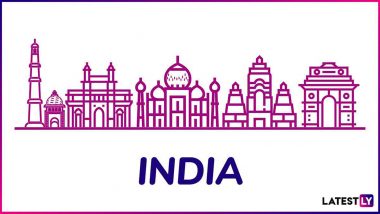New Delhi, Sep 29 (PTI) Lawyers and activists on Thursday welcomed the Supreme Court's observation that the meaning of rape must include marital rape for the purpose of the Medical Termination of Pregnancy Act, but added the order does not make it an offence which could only happen by broadening the ambit of Article 375.
In a significant ruling on the reproductive rights of women, the Supreme Court held on Thursday that all women are entitled to safe and legal abortion till 24 weeks of pregnancy under the Medical Termination of Pregnancy (MTP) Act, and making any distinction on the basis of their marital status is "constitutionally unsustainable".
Also Read | Senior Citizens' Savings Scheme: No Premature Closure of Account on Death, Clarifies Finance Ministry.
The top court also said the meaning of offence of rape must include marital rape for the purpose of the MTP Act.
Explaining the meaning of the Supreme Court's observation, senior lawyer Shilpi Jain said it enforces the right of a woman to choose whether she wants to carry on with her pregnancy or not and gives her the sole right and the partner does not have a say.
Also Read | Punjab Shocker: Youth Attempts Rape Bid on Co-Worker's Minor Daughter in Mohali, Arrested.
"It is an extremely progressive judgement like that of never before but the observation on marital rape does not make it an offence. The observation is only in the circumstances wherein a woman can get pregnant and one of those circumstances being when a man has intercourse with a woman in marriage...nowhere making marital rape an offence," she told PTI.
"Marital rape will only become an offence when it is added to IPC. This judgement nowhere touches about broadening the ambit of rape to include cases wherein a husband has sex with his wife without her consent. It does not broaden the ambit of Article 375 that is the criminal aspect of it," she added.
Jain was the defence lawyer in the Alwar rape case wherein a foreign tourist was raped by Bitti Mohanty, the son of former Odisha director general of police B B Mohanty.
Section 375 of the Indian Penal Code defines rape as "sexual intercourse with a woman against her will, without her consent, by coercion, misrepresentation or fraud or at a time when she has been intoxicated or duped, or is of unsound mental health and in any case if she is under 18 years of age."
Marital rape comes under the exception 2 of Section 375 states that “sexual intercourse or sexual acts by a man with his own wife, the wife not being under fifteen years of age, is not rape”.
Ranjana Kumari, social activist and director of the Centre for Social Research, said it has reaffirmed the rights of Indian women to go for abortion but most difficult and the most substantial part of the whole judgement is recognising marital rape.
"They are talking about rape and martial rape so it is the most significant part of the judgement. It is a progressive stance that the government has taken and the SC has cleared a big bottleneck for women. Now the SC has recognised it so Parliament should also move on part of legal framework," Kumari told PTI.
Woman rights activist and founder of PARI (People Against Rapes in India) Yogita Bhayana said it is a history in making and it is a very progressive step by the Supreme Court.
"It is a beginning and they should come out with more and more progressive laws on marital rape because it is a reality," she said.
On the apex court's order on women entitlement of safe and legal abortion till 24 weeks of pregnancy under the MTP Act, Poonam Muttreja, the executive director of the Population Foundation of India, also recommended increasing the gestation period for all women as medical technological advancements have shown that abortion beyond 20 weeks is safe. Some foetal abnormalities can be detected only after 20 weeks.
"We must also address the fact that regardless of its legal status, abortion facilities are inaccessible to a large chunk of our population. After last year's amendment, the termination of pregnancy can be performed only by doctors with a gynaecology or obstetrics specialisation," the PFI said in a statement.
"A majority of the abortions are performed in the private sector. This results in high costs making the service inaccessible for marginalized communities,” she said.
Politicians have welcomed the order too.
TMC MP Mahua Moitra called it a huge step forward.
"A huge step forward - SC allows abortion up to 24 weeks irrespective of marital status - says to do otherwise will be violative of Article 14. Thank you MiLords!" Moitra tweeted.
Shiv Sena MP Priyanka Chaturvedi called it a "very progressive & welcome decision from the Supreme Court, now for the society to adjust & accept the very basic idea of woman's autonomy — which is her basic right to equality, privacy, and bodily integrity".
(This is an unedited and auto-generated story from Syndicated News feed, LatestLY Staff may not have modified or edited the content body)













 Quickly
Quickly
















